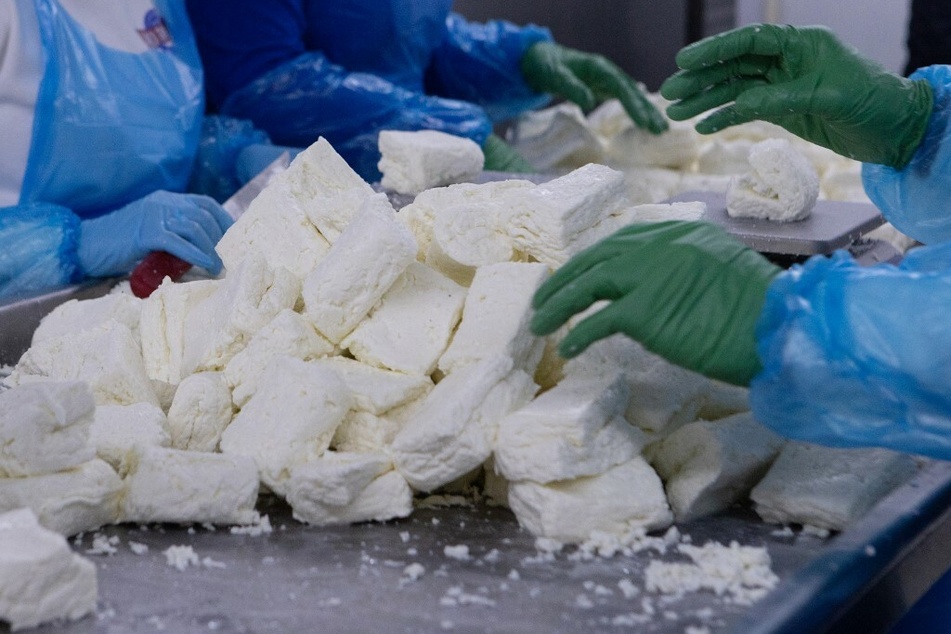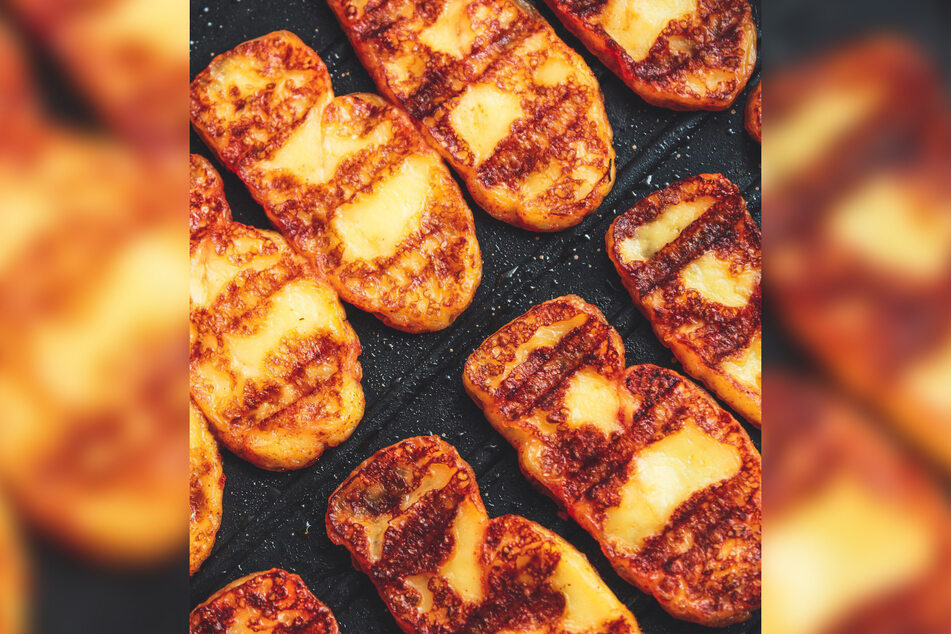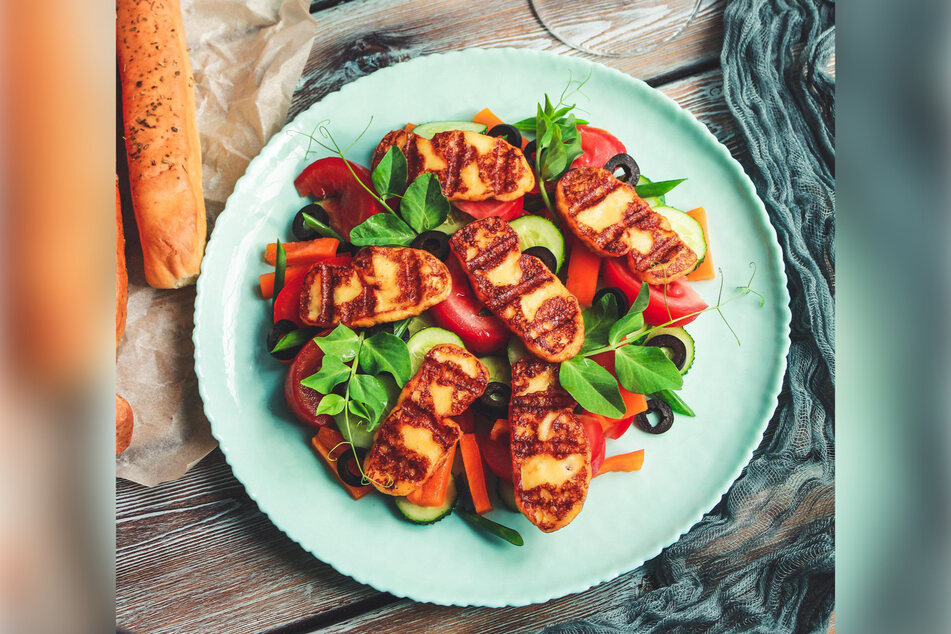How healthy is halloumi?
Hearty, chewy and filling, grilled cheese like halloumi is an increasingly popular alternative to meat in many parts. Watch out though, as nutritional experts say one portion can be as much as half of daily calorie needs.

Grilled cheese or fried cheese are easy and tasty, making them seem like a perfect alternative when you're trying to make a meat-free meal.
How healthy is it though? Two dieticians provide some clues.
The ingredients question:
Fried, grilled, and pan-fried cheeses can be made of cow's milk, goat's milk, or sheep's milk. Halloumi is the best known of these cheeses.
In the US, "halloumi" is a registered trademark owned by the government of Cyprus, where it is typically produced.
Cheeses that are made for cooking can contain ingredients such as chicken egg protein powder, starch, herbs, spices, thickeners, antioxidants, and flavorings. Some also contain lemon juice, sugar, and other additives.
Often these pieces of cheese are breaded or marinated.
So check the ingredients when you're shopping, says dietician Astrid Donalies.
However, if you can't find an ingredients list then the product will likely only contain the ingredients used in cheese production, says consumer advice specialist Jana Fischer. That means milk and dairy products, enzymes, micro-organism cultures, and salt.
How to prepare halloumi and other cheeses

You can grill or fry any of these cheeses and they'll stay firm when you bite into them – or at least won't melt entirely.
That's because after it's made, the cheese is heated in whey, a process that hardens the milk protein in the cheese in order to prevent it from melting when grilled or fried, Donalies says.
That process, called denaturation, is also what makes the cheese to squeak when you bite into it after it's been grilled.
There are other types of cheese that soften when they're heated, and often they are sold in aluminum trays for use on a barbecue or grill. The trays usually have a special coating, says Fischer, adding that you don't want to cook or store acidic or salty foods in regular aluminum foil.
That's because subjecting it to acid and salt can partially dissolve the metal, meaning it gets transferred to your food and later winds up being consumed with your meal.
Fischer also says these coated, disposable aluminum trays are not the ideal choice from a sustainability point of view either. Try using reusable grill trays and pans, she says, such as those made of stainless steel.
How nutritious is halloumi, though?

Cheese is often offered as a vegetarian alternative to sausage or steak, but be aware that these kinds of cheese contain a lot of fat, and with it calories, says Donalies.
Halloumi, for example, contains about one ounce of fat and 378 calories per 3.5 ounces. A thick slice of cheese can weigh up to seven ounces, meaning an average adult woman would cover almost 40% of her daily energy requirement – around 1800 calories – with a portion of this cheese alone.
The fat and energy content rises further with products that are marinated or breaded.
So if you're serving grilled cheese instead of meat, make sure plenty of vegetables and salad are available too.
Donalies says there's nothing wrong with occasionally eating grilled and fried cheese as part of a balanced diet. Milk and dairy products provide readily available proteins, vitamin B2, and calcium.
What to look for when buying cheese
As cheese is an animal product, Fischer recommends you pick an organic quality product for the sake of animal welfare. "In organic farming, for example, the animals have more space and are fed GMO-free feed."
She points out that the price itself does not tell you much about the quality of the product, as retailers are the ones setting the prices.
Factors that affect the price beyond the production costs include what a particular target group may be likely to pay for a product, says Fischer.
Cover photo: Collage: Pixabay / NastasyaDay / 175 images

